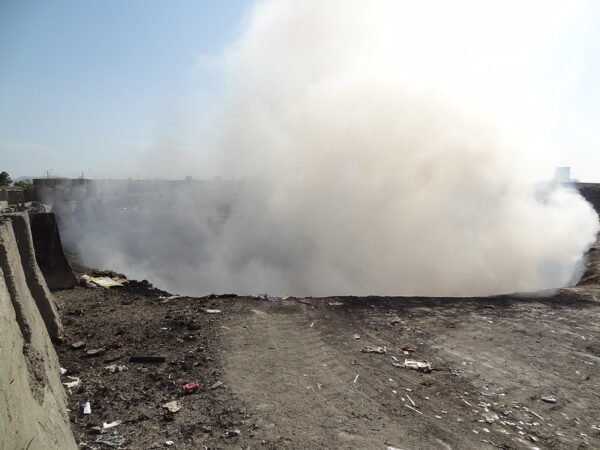
(Photo: SIGAR Inspection Report on Forwarding Operating Base Salerno Incinerators and Open-Air Burn Pit)
Veterans who served in the military may have been exposed to various toxic hazards during their time in service. Recognizing the potential health risks associated with toxic exposure, the Department of Veterans Affairs (VA) is dedicated to providing support to veterans. The VA’s commitment to screening, healthcare, and resources for veterans with toxic exposure concerns ensures that proactive health management and necessary benefits are accessible. The PACT Act aims to ensure that veterans receive the care and compensation they deserve in managing potential health risks associated with toxic exposure.
Types of Toxic Exposure
Toxic exposure covers several potential hazards that veterans might have encountered during their military service. Common examples include open-air burn pits in Iraq and Afghanistan, which emitted smoke, fumes, and other contaminants into the air. Additionally, veterans may have been exposed to airborne hazards, such as fine particulate matter, and experienced environmental hazards like pesticides and oil well fires during these conflicts.
Agent Orange, a herbicide used in Vietnam, and radiation exposure from nuclear weapons are also potential risks. Veterans who served at Camp Lejeune between August 1, 1953, and December 31, 1987, may have also been exposed to contaminated drinking water.
More generally, service members are likely to have also been exposed to other potential toxic hazards during their military service, highlighting the importance of proactive health management.
Managing Your Health as a Veteran
By developing a long-term healthcare plan in collaboration with your care team, you can detect any related conditions early and effectively treat or manage complications arising from toxic exposure.
To discuss your exposure concerns, you can talk to a VA provider by calling 1-800-MyVA411 then press 8. Alternatively, you can send a secure message to your clinical care team through the My HealtheVet patient portal at: myhealth.va.gov, or My VA Health at: patientportal.myhealth.va.gov. Raise your concerns during your next VA appointment if you think you were exposed to toxic hazards during your time in the military.
Alternatively, Veterans can always contact The American Legion for help obtaining benefits.
Enrollment in VA Care
Enrolling in VA care provides veterans with access to healthcare services. Online enrollment is available at: va.gov/health-care/apply/application/introduction, or you can call 877-222-VETS (ext. 8387) for assistance. If you prefer in-person enrollment, visit your nearest VA Medical Center (you can find that here: va.gov/find-locations).
Registry Health Exams
The VA offers no-cost, voluntary environmental exposure medical exams through registry health exams. These exams are designed to identify potential health issues associated with military service-related exposures.
The VA has established several health registries, such as Agent Orange, Airborne Hazards and Open Burn Pit, Gulf War (including Operations Iraqi Freedom and New Dawn), Ionizing Radiation, Depleted Uranium Follow-up Program, and Embedded Fragment Surveillance Center. Participating in these registries can help you stay informed about potential health problems related to your military service and assist the VA in better understanding and responding to these issues.
To schedule a registry exam, you can visit: publichealth.va.gov/exposure/coordinators, visit your local VA Medical Center, or contact 1-800-MyVA411, then press 8.
Additional Resources
The VA provides various additional resources to support veterans with toxic exposure concerns. The VA Exposure Ed mobile app, available for download at mobile.va.gov/app/exposure-ed, offers information on military environmental exposures. Veterans can also visit va.gov/PACT or call 1-800-MyVA411 (press 8) for further assistance. Again, you can also contact The American Legion for help, too.
VA Benefits
For veterans affected by certain health conditions related to their military service, the VA offers disability benefits and compensation. To be eligible for these benefits, veterans must establish a service connection, proving that their condition is a result of their military service. However, some conditions are automatically presumed to be service-connected under new policies mandated by the PACT Act.
If you have a presumptive condition, you do not need to prove that your service caused the condition, but you must meet the service requirement for the presumption benefits.
Surviving spouses, dependent children, and parents of deceased veterans may also be eligible for benefits such as dependency and indemnity compensation. Veterans who had their claims previously denied can file a supplemental claim for benefits. To file a claim, visit: va.gov/disability/how-to-file-claim or access VA benefits through ebenefits.va.gov.
For assistance with filing a claim, you can call the VA benefits hotline at 1-800-827-1000 or connect with The American Legion.













